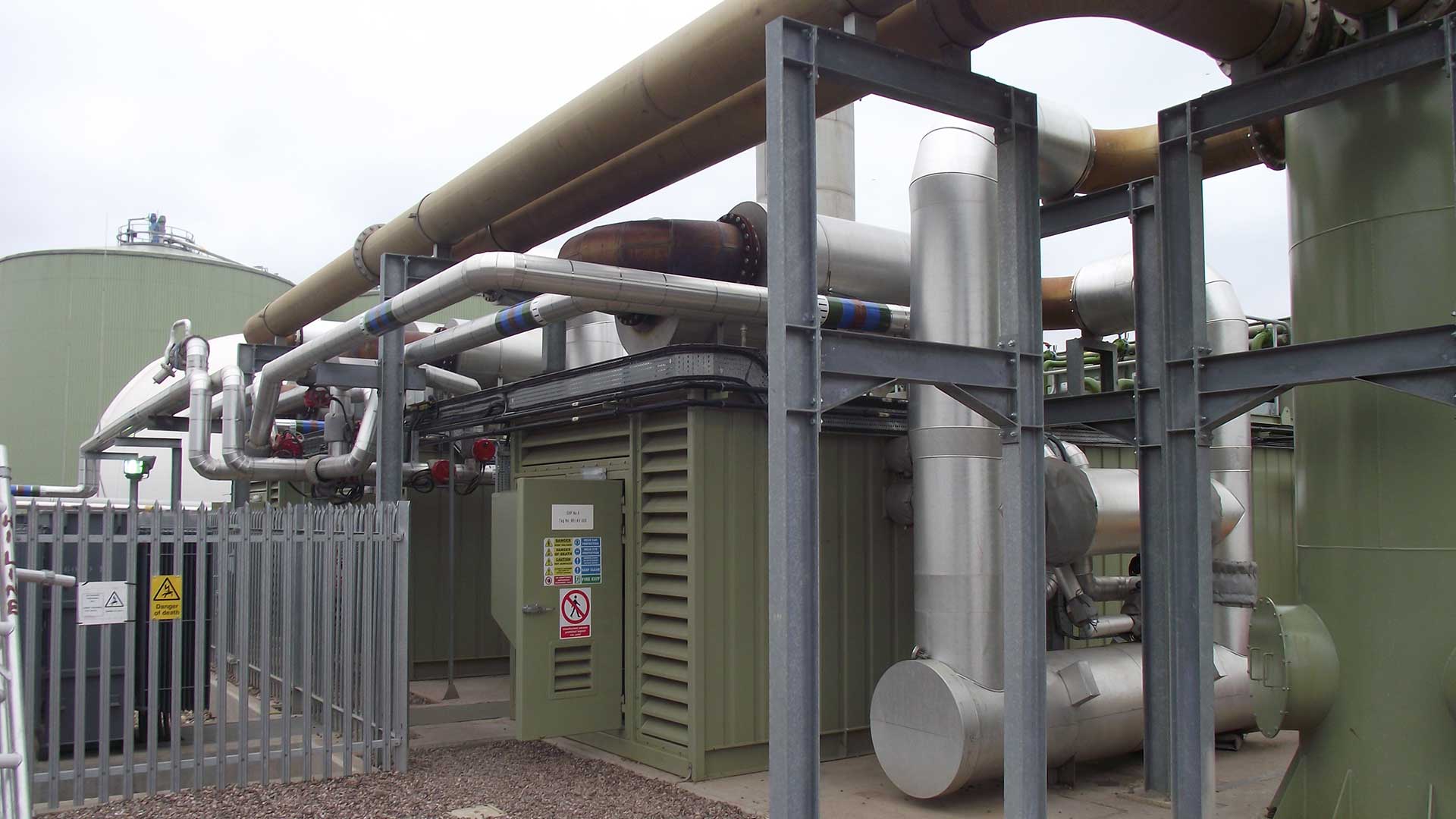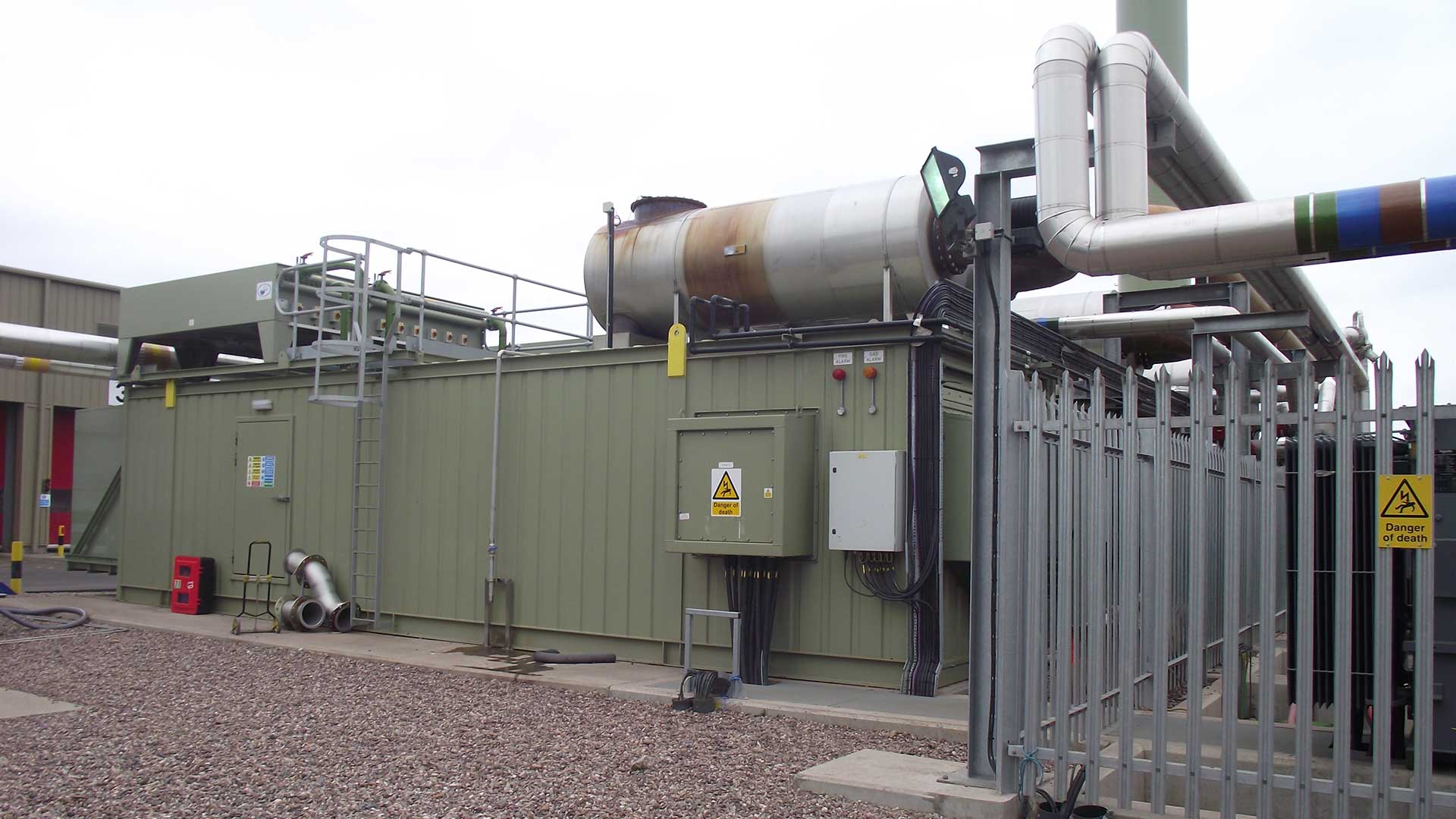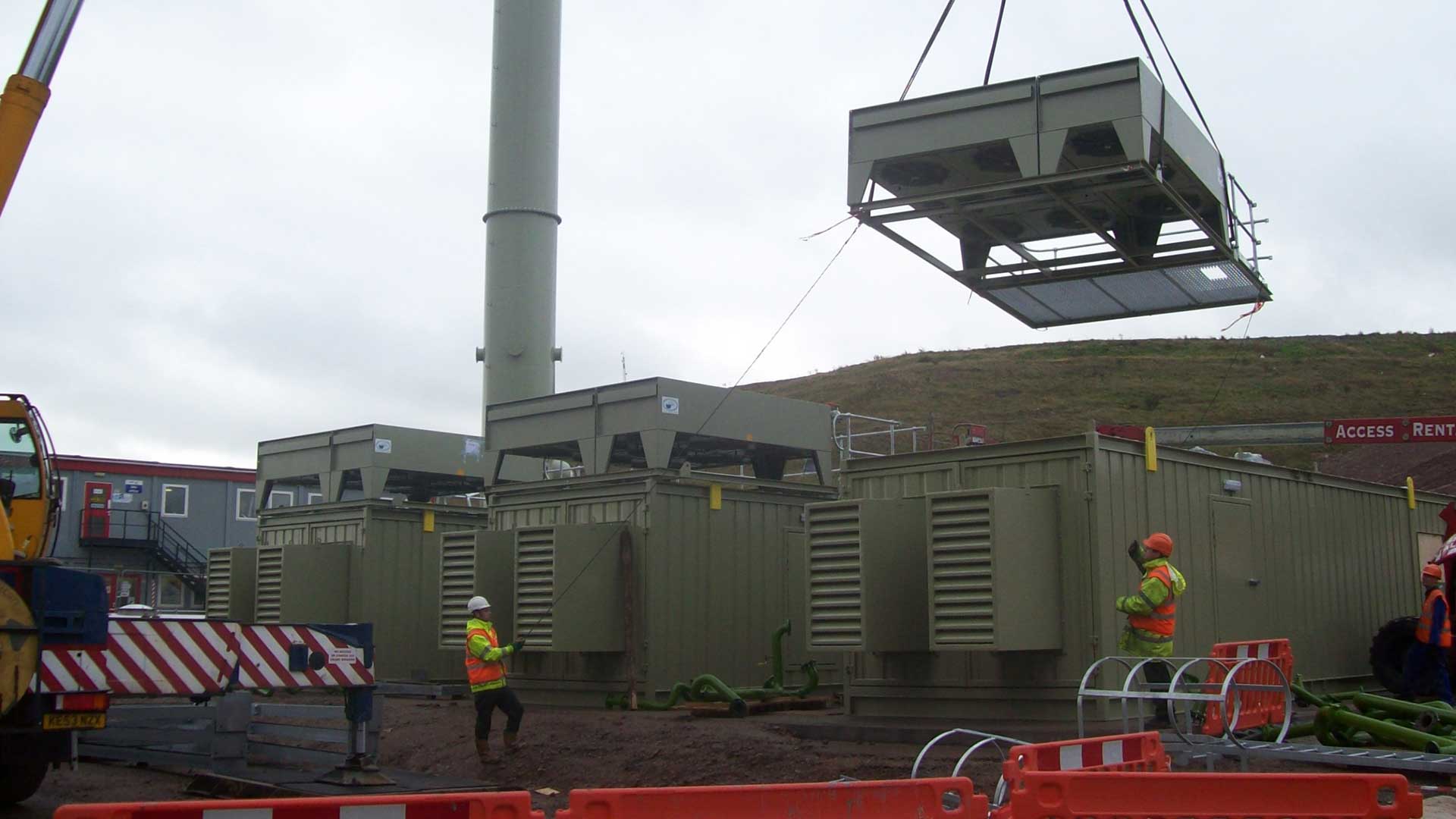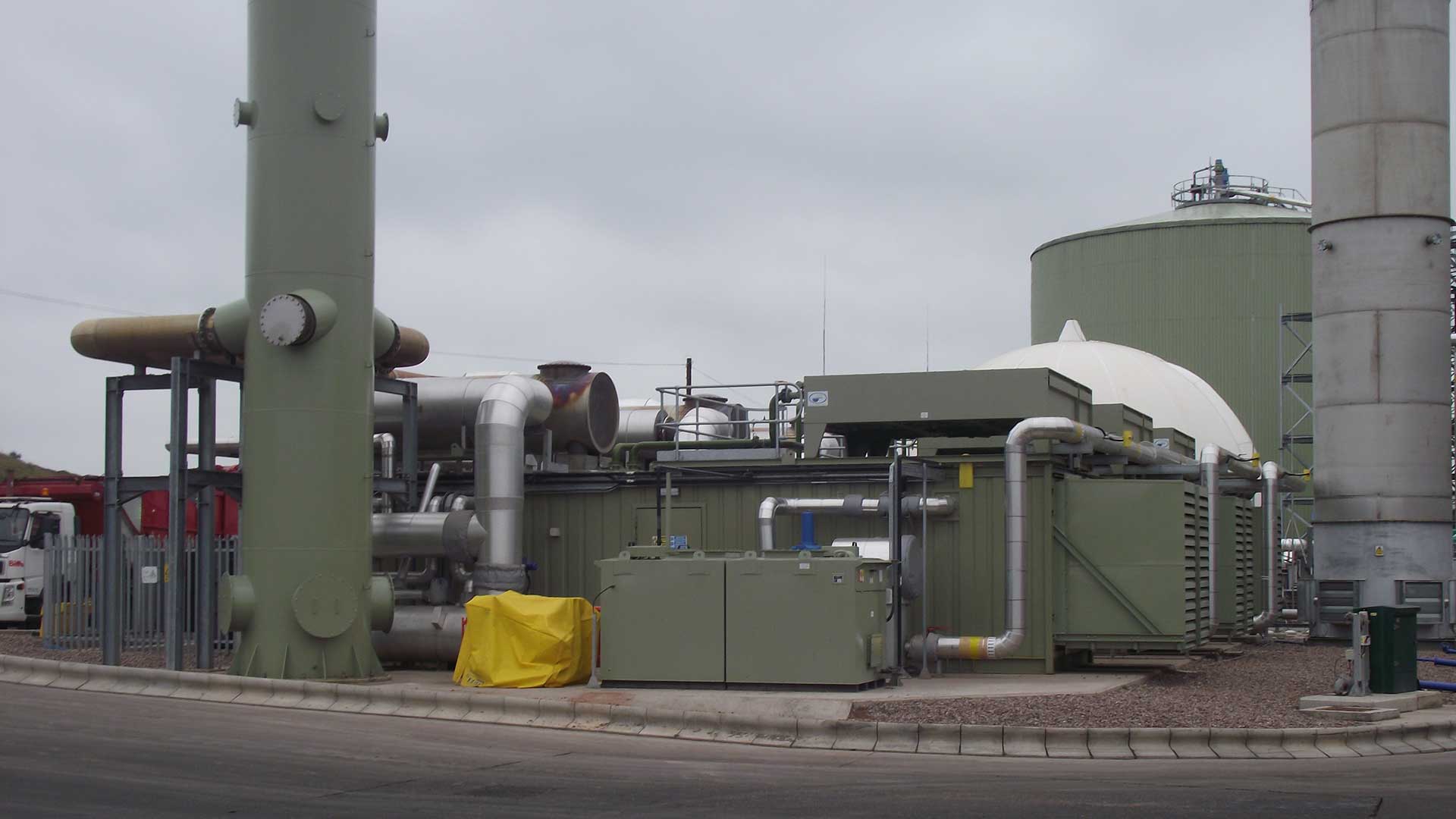Search
Edina supplies and installs leading efficiency and performance biogas combined heat and power (CHP) at Biffa’s flagship Anaerobic Digestion (AD) plant in Cannock, Europe’s largest waste processing plant capable of handling over 120,000 tonnes of food waste per year.





Edina supplies and installs leading efficiency and performance biogas combined heat and power (CHP) at Biffa’s flagship Anaerobic Digestion (AD) plant in Cannock, Europe’s largest waste processing plant capable of handling over 120,000 tonnes of food waste per year.
As a landfill operator of many years’ experience, BIFFA put forward proposals to create an AD facility at its landfill site in the West Midlands. Aware that the thousands of tonnes of food waste could be put to better use and in response to the UK’s National Waste Strategy a plan was devised whereby waste food could be delivered to an enclosed warehouse, sorted and then used for AD all at one site.
Costing £24million to develop, the Poplars AD plant was intended to mainly treat commercial and industrial food and organic waste from the likes of Sainsbury’s and Bakkavor.
Edina supplied three MWM manufactured TCG 2020 V20 biogas CHP engines providing 6.5MWe capacity. All three engines were containerised at Edina’s manufacturing facility based in Lisburn, Northern Ireland and delivered to site. Biffa are now in the process of installing an additional 500kW engine at its Poplar’s site.
In terms of the process, waste is pumped into one of the five digester tanks, which is then heated to 70 degrees Celsius, allowing the AD process to work and produce the methane gas.
The plant uses CHP boilers which produce both heat and electricity. About 15% of the electricity is used by the plant, but the rest is sold back to the National Grid. The heat generated on the other hand is reused in the plant across Biffa’s operations.
Biffa’s flagship plant in Cannock was opened in April 2011. The site is the biggest in Europe handling 120,000 tonnes of food waste annually and although an existing landfill site, BIFFA worked hard with suppliers and the local residents to lessen the impact of its activities on the area and allay any concerns about the AD facility.
Due to the plant being located near the landfill site, Biffa used its existing waste management infrastructure to exploit efficiencies, such as a ready supply of suitable feedstock to allow them to produce large volumes of gas, which can be combusted to produce electricity.
The UK generates around 15million tonnes of food waste per year, with businesses accounting for just under half of this in the food production sector.
Much of this food waste is currently sent to landfill sites where it is slowly broken down into methane and carbon dioxide, which are both powerful greenhouse gases.
This project aligns to the Government’s strategy of recycling waste to be used to produce renewable energy. One of the by-products of the digestion process is high quality soil, which can then be sold onto farms and local gardening centres in the West Midlands.

Client:
Biffa
Location:
Cannock, United Kingdom
Capacity:
6.5MWe
Operational:
2011
Manufacturer:
MWM
Packager:
Edina
Engine Type:
3 x 2MWe TCG 2020 V20 and 1 x 500kWe TCG 2016
Primary Fuel:
Biogas
Edina CHP generator facility powers homes and reduces CO2 at Whiteriver landfill.
Read moreAn innovative method of waste disposal, which in turn creates its own energy, is being supported by Edina standby diesel power generation.
Read more


Copyright © Edina. All Rights Reserved.